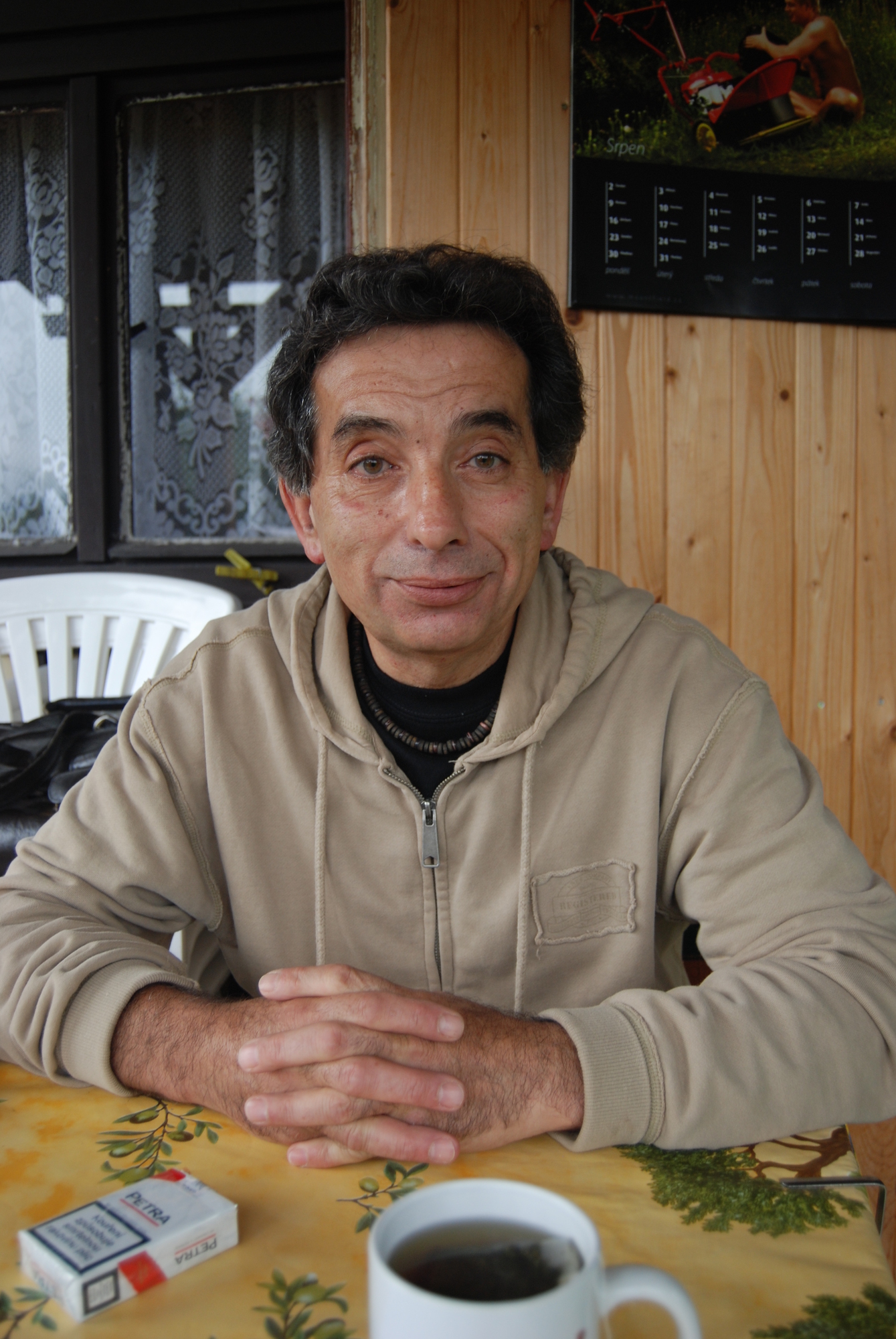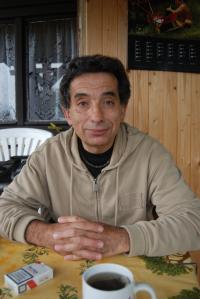(Q: “Do you have Greek citizenship?”) “Well, I did have, but there was that one time, ninety-five or when was it, they said they’d be expelling. I didn’t have Czech citizenship, I didn’t, but then there was the regime change, and that they’d be expelling foreigners and so on and so on, fear and the whatnot... We didn’t find out till later that they split it into exchange foreigners and working foreigners, right. So I reckon, you’re here so many years, you work here and suddenly just because... Some law pops up, right, and we’ll have to have Czech citizenship, right. Otherwise we didn’t do military service, nothing. Then they called us in for military service, I was married by then, had children for ages and everything, right. That was funny. They called us in to the army office and we had a lot of fun there. I had a moustache then, like Stalin. We came to the army office, and they looked at us like what do we want here. We said: to do military service, who knows. We saw how the youngsters in the waiting room there, someone came out jumping that he can skip service. They wanted the blue books (documents excusing a person from military service – transl.), and we came along, me and my cousin, him with a full beard too, and they said like, oh well, some paper, so we came along, happened to meet some boys, university students, they have the two stripes, golden like, they always have it, that they’re university students. They looked at us and said: ‘So go there.’ We went along, so we kind of passed through it, the medical exam. There’s like a circle there, a medical one, and some such and then they do - then we were talking, there was one doctor there. And he looked at us and said: ‘You’re Greeks.’ So we started talking about Greece. And then the verdict was they wouldn’t take us into the army, that we’re able, but age-wise... And I said we both disagree, that we want into the army. That it’s unfair to us, that I already got it arranged and such. I said: ‘I’ve got it arranged at work, that when it’s time for the oath, that a bus, a minibus, that it’s ready, that the family will come. My daughters, my family, the one parents and the other, my friends will all come for the oath.’ They started to laugh: ‘You don’t mean that seriously.’ I said they couldn’t do this to us. My cousin also started... Then they said: ‘Not an option, no no no.’ ”

